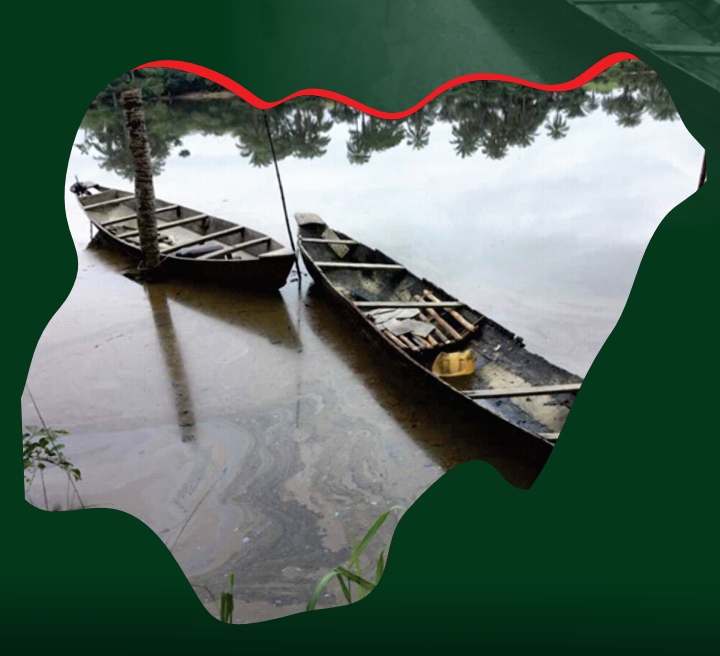By Archibong Jeremiah
We The People – Centre for Social Studies and Development has reviewed the Host Community Provisions in Nigeria’s Petroleum Industry Bill 2020.
The NGO which was founded as a rights platform aimed at mobilizing and organizing citizens to demand their
social contract from Government institutions and their officials published the 20 page report March, 2021.
We The People whose goal includes creating an open and free society founded on a modern-day social contract, envisioning the attainment of a just society founded on the principles of a citizen driven and Government protected social contract faulted several sections of the Bill.
See executive summary of the NGO’s position below.
Nigeria’s journey to achieving a comprehensive legislation that addresses the key issues in the oil sector has been marred by controversies and setbacks. The 2020 Petroleum Industry Bill (PIB) represents yet another attempt at establishing new institutional frameworks to govern operations in the oil and gas industry in Nigeria, aiming to ensure improved benefits to Nigerians from the sector. One critical aspect of the Bill is its proposed relationship with communities where hydrocarbons are extracted.
Chapter III of the PIB makes elaborate provisions for the establishment and management of a Petroleum Host Communities Development Trust to manage an annual contribution of 2.5% of the total operating cost of the settlor in the preceding calendar year in respect of all petroleum operations affecting the host community.
According to the Chapter, the objectives include to foster sustainable prosperity within host communities, provide direct social and economic benefits from petroleum operations to host communities, enhance peaceful and harmonious co-existence between licensees or lessees and host communities, and to create a framework to support the development of host communities. As well intentioned as the provisions of the Chapter are, this report raises key concerns that require addressing in order to ensure maximum delivery on these objectives.
Among the key issues are the governance structures of the Petroleum Host Communities Development Trust which overtly emphasizes the control of the settlor who is empowered to establish the key governance structures of the trust, with or without the participation of the communities or the Government. This has been rated as a possible conflict trigger. Additionally, the PIB makes the settlor chiefly responsible for determining the needs of host communities and drafting development plans for them, with limited participation of those communities.
Interestingly, the responsibility of defining which communities are ‘hosts’ of petroleum activities, is left at the discretions of the settlor, without any defined role for communities and the Government.
Controversially, the PIB passes the responsibility of protecting oil installations to the communities and proposes to deny them entitlements provided for in the Bill if sabotage or civil unrest occurs in their communities. The Bill expects unarmed communities to protect oil installations from armed cartels of oil thieves.
This report also highlights the fact that the Bill is silent on frameworks for dispute resolution, a neglect which has often led to conflicts, and more recently, led to communities filing litigations against oil companies abroad.
The report also calls attention to the passive manner the Bill deals with the environmentally dangerous, economically wasteful and health threatening practice of gas flaring. The Bill allows the government to introduce discretionary fines, award discretionary permits to flare, and spells no real sanctions for gas flaring, or even propose a deadline to end the practice. Even the paltry fines from flaring are to be paid into the coffers of the Federal Government and shared as routine revenues without any regard for the communities who suffer the adverse livelihood and health impacts.
To ensure that the PIB 2020 achieves its objectives, this report makes the following recommendations among others;
· The composition of the governance structures of the Petroleum Host Communities Development Trusts should be adjusted to reflect community participation.
· It is recommended that Government at the Federal and State levels be made to play leading roles in defining host communities. Communities should also be allowed a role in determining this too. In defining host communities, adequate consideration should be given to communities that host oil installations, those that are affected by the often-negative impacts of extraction and those whose land, rivers and creeks provide access for oil facilities.
· It is recommended that provisions for needs assessment be adjusted to include the active participation of communities as well as the Government.
· Provisions for penalty in respect of failure to comply with the provisions of the Bill for setting up the Host Communities Development Trusts are weak and imprecise. The use of the word ‘may’ create openings that could affect the enforcement of penalties. It is recommended that the language in section 238 be changed to ensure definite penalty if a Settlor fails to follow the provisions of the Bill.
· It is recommended that the Bill creates an additional section that establishes frameworks for dispute resolution.
· It is recommended that section 257 which places the responsibility of protecting oil installations on petroleum host communities be completely expunged from the Bill.
· On gas flaring, it is recommended that a new section reading “All fines for gas flares under this Section shall be utilized in the following manner: 50% paid into the Environmental Remediation Fund provided for in this Act while the remaining 50% is to be paid into the Host Community Trust Fund of the community from where such flares occurred,” be introduced.
· It is recommended that the discretionary powers given to the Commission to determine how much is paid as penalty for gas flaring be removed. The regulations should clearly state the fines for violations and how they should be calculated; while the PIB should state a definite date to end gas flaring.

Leave feedback about this